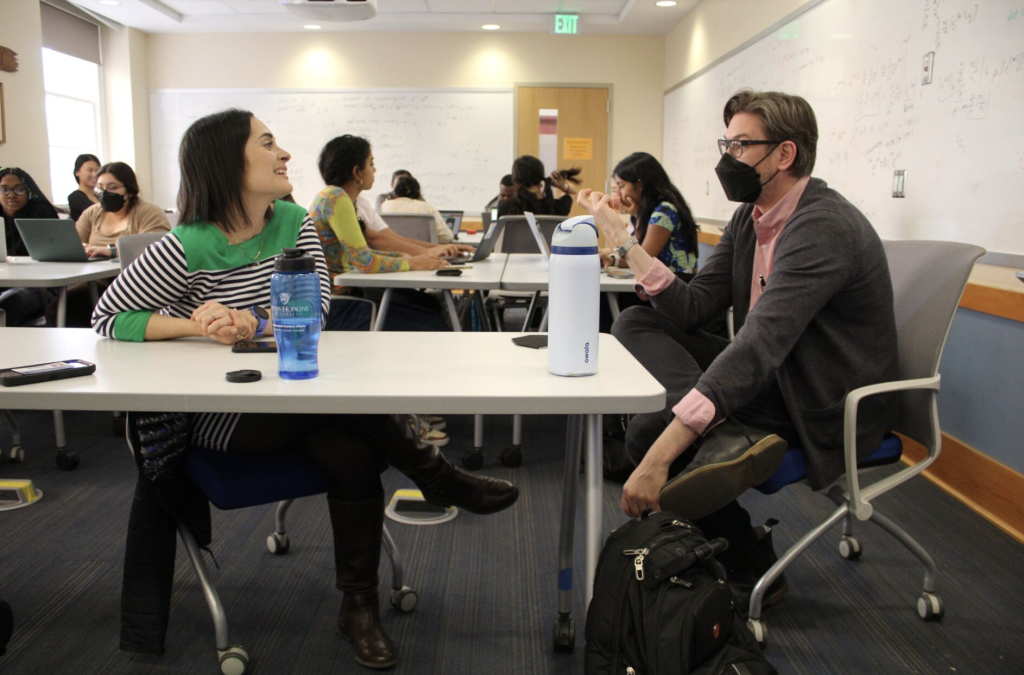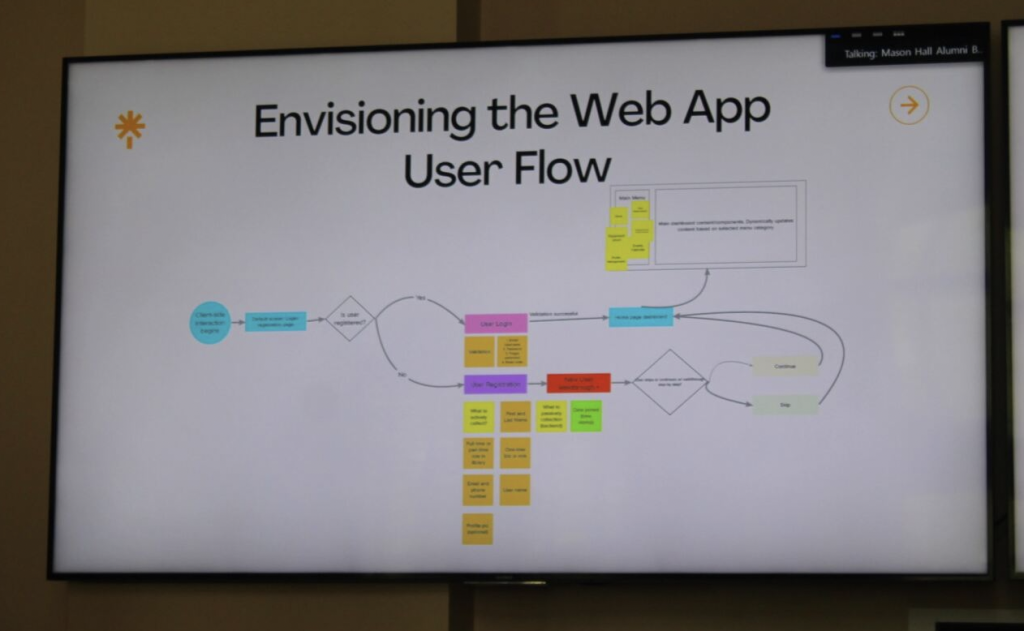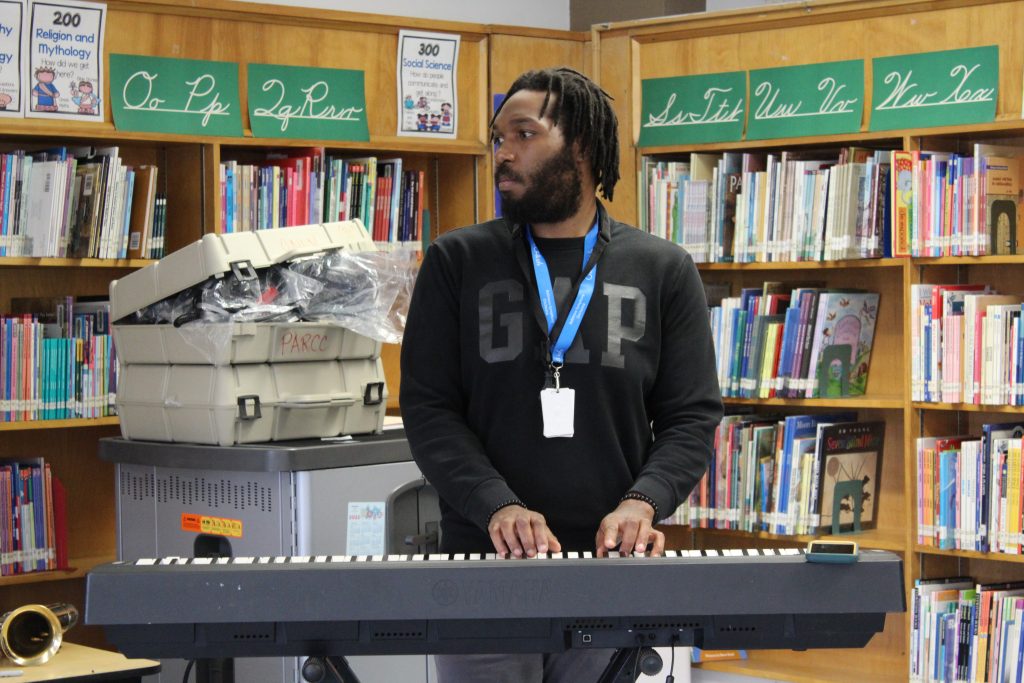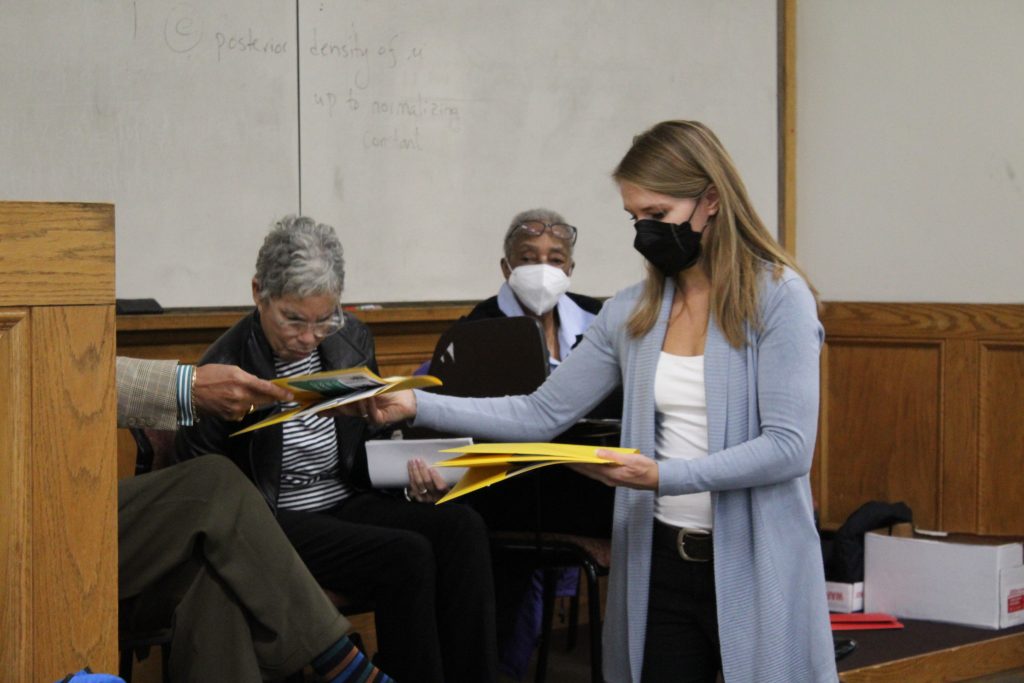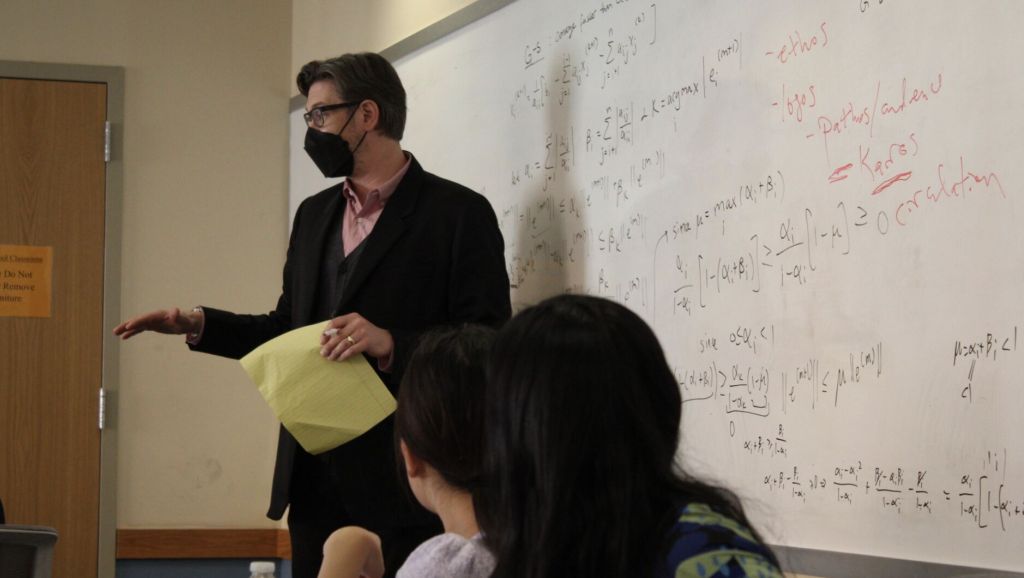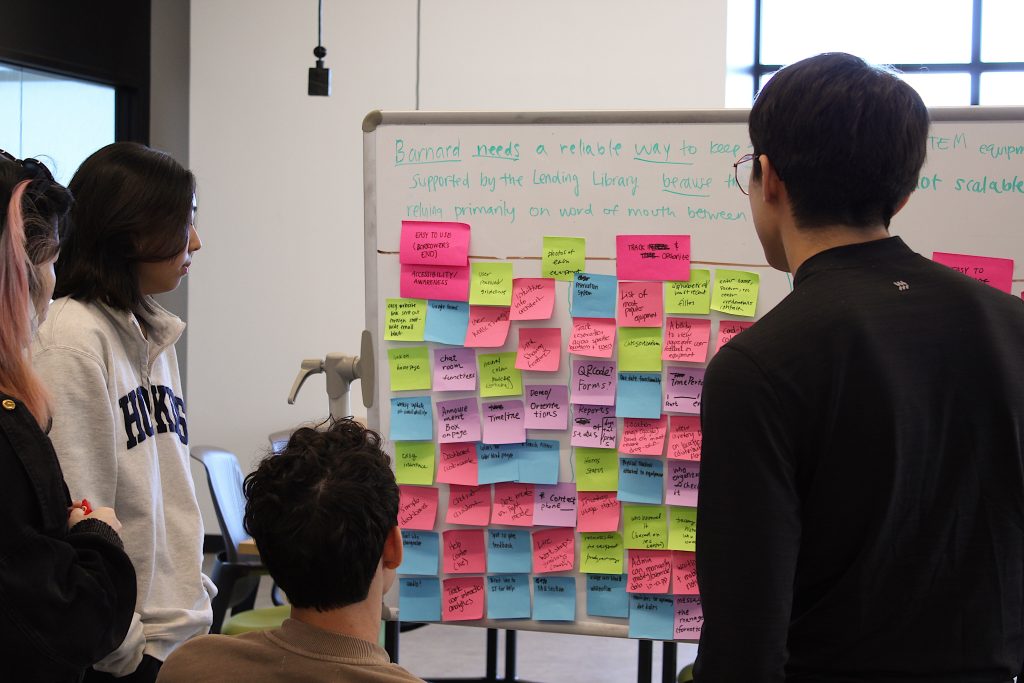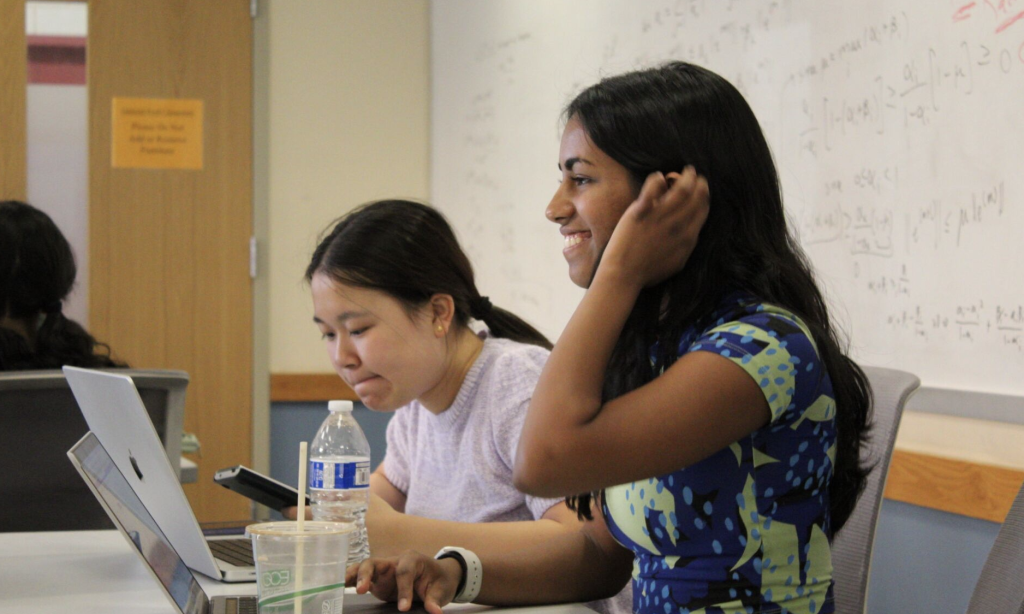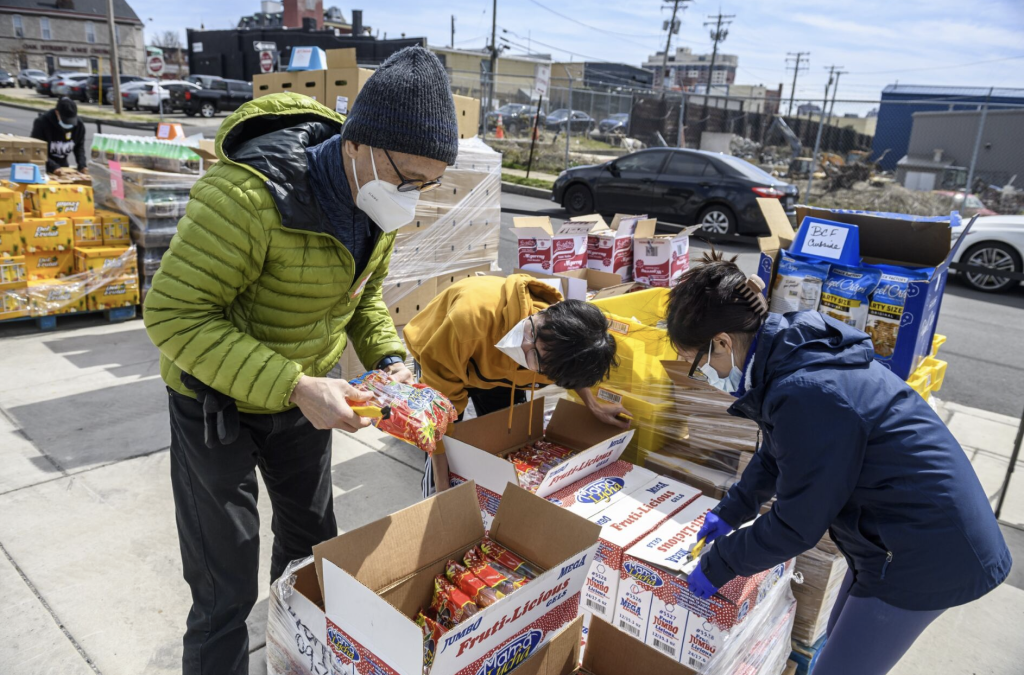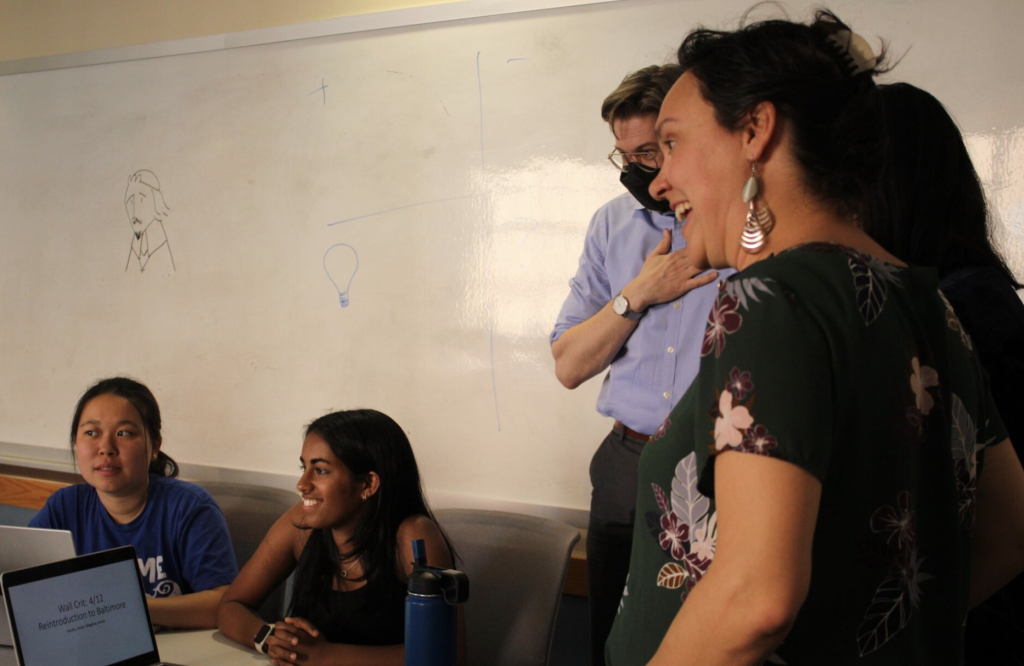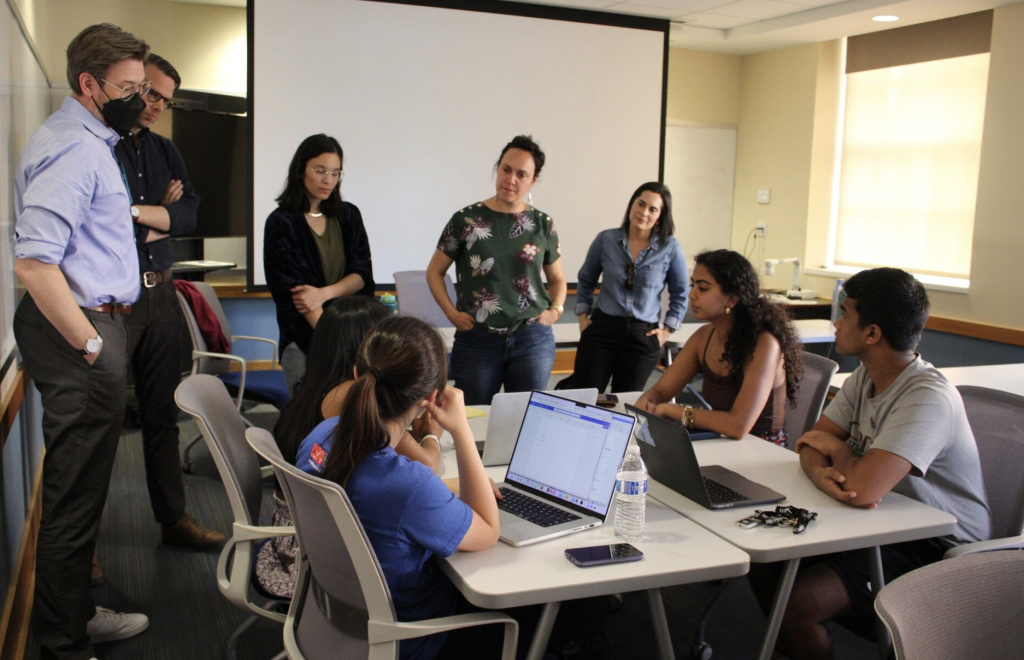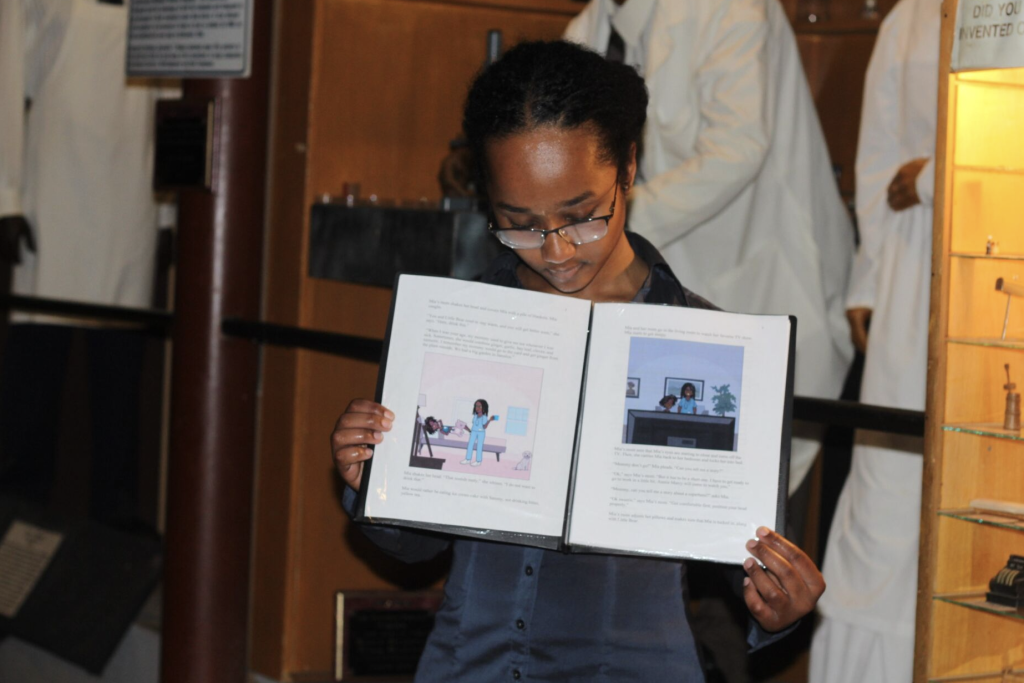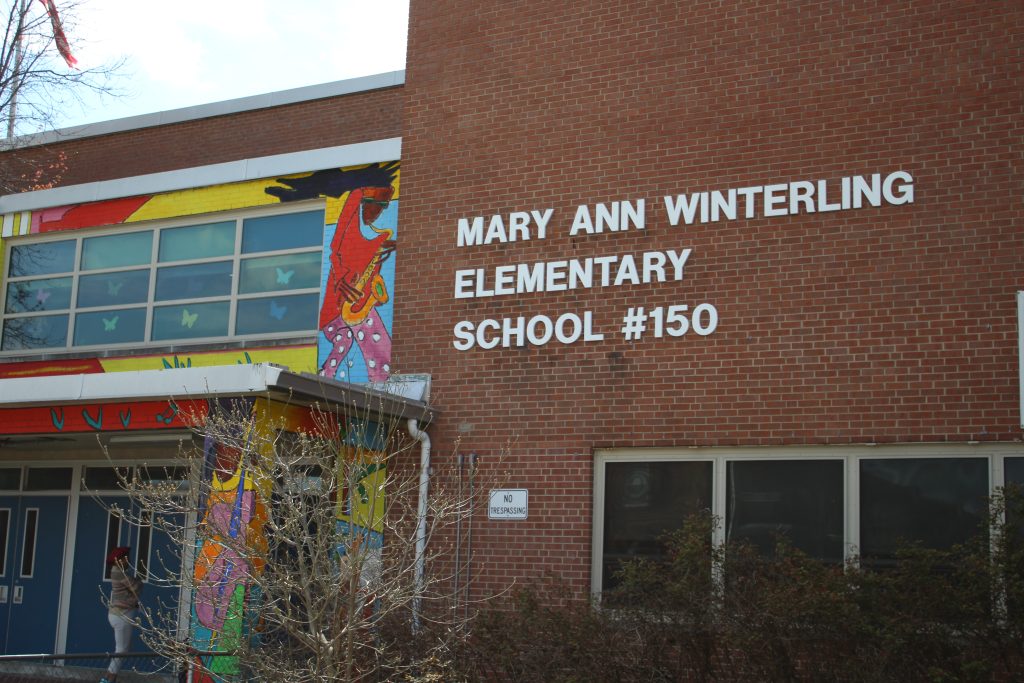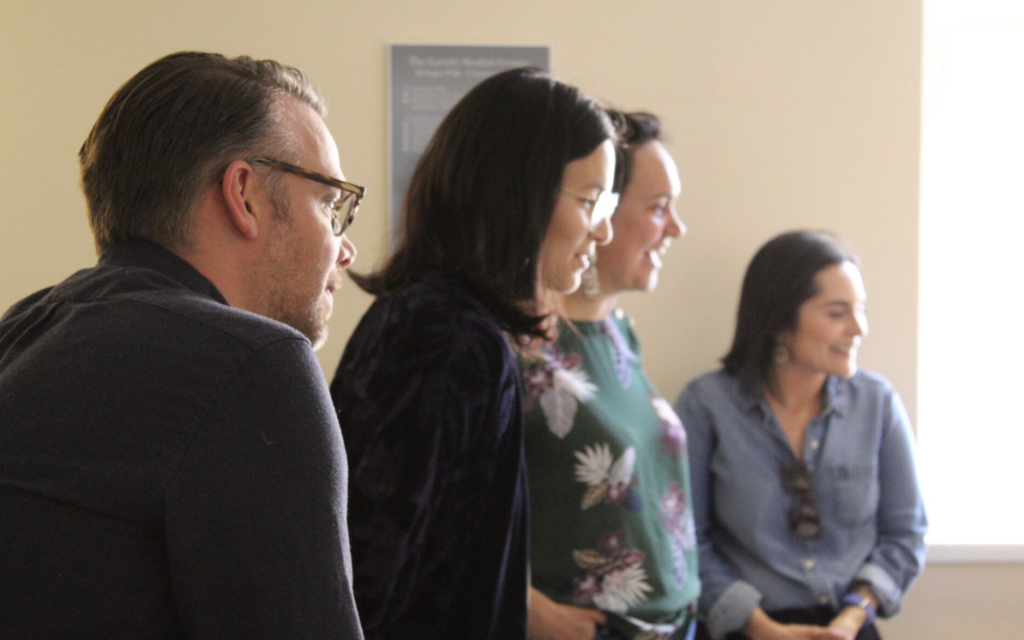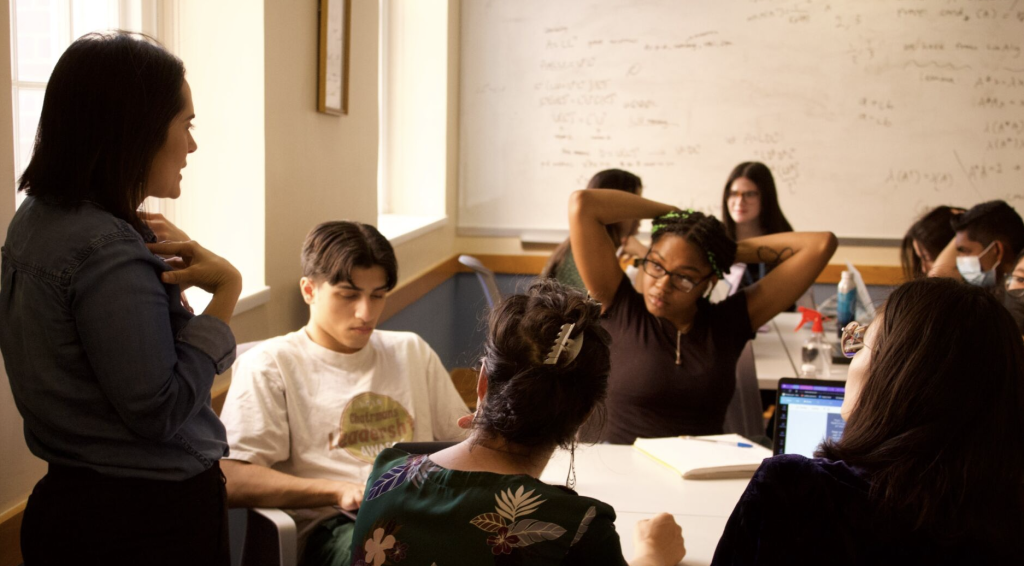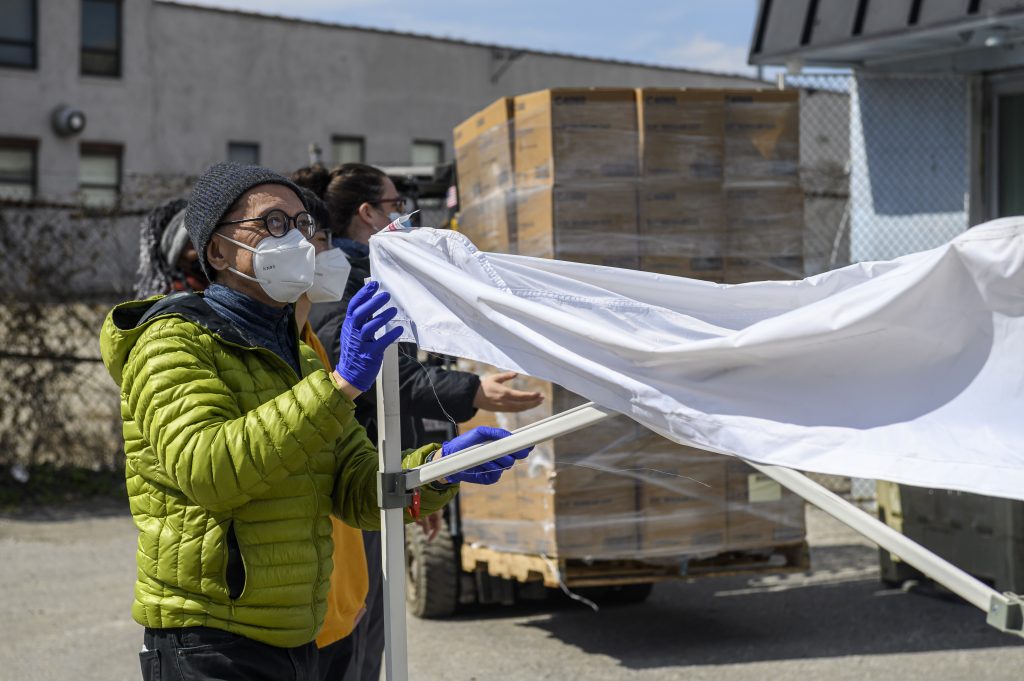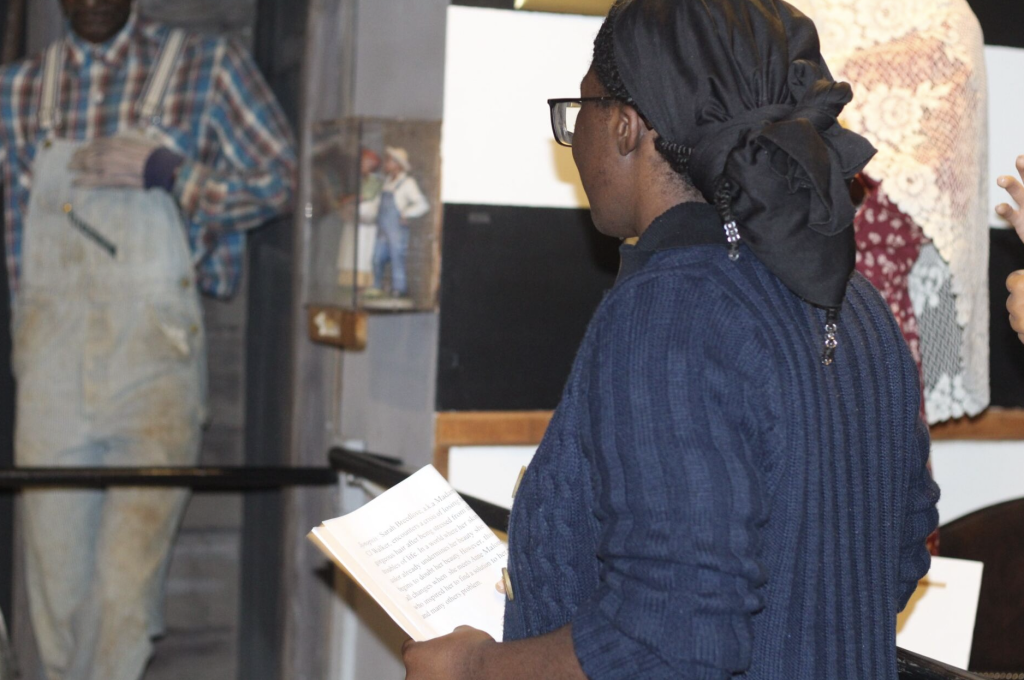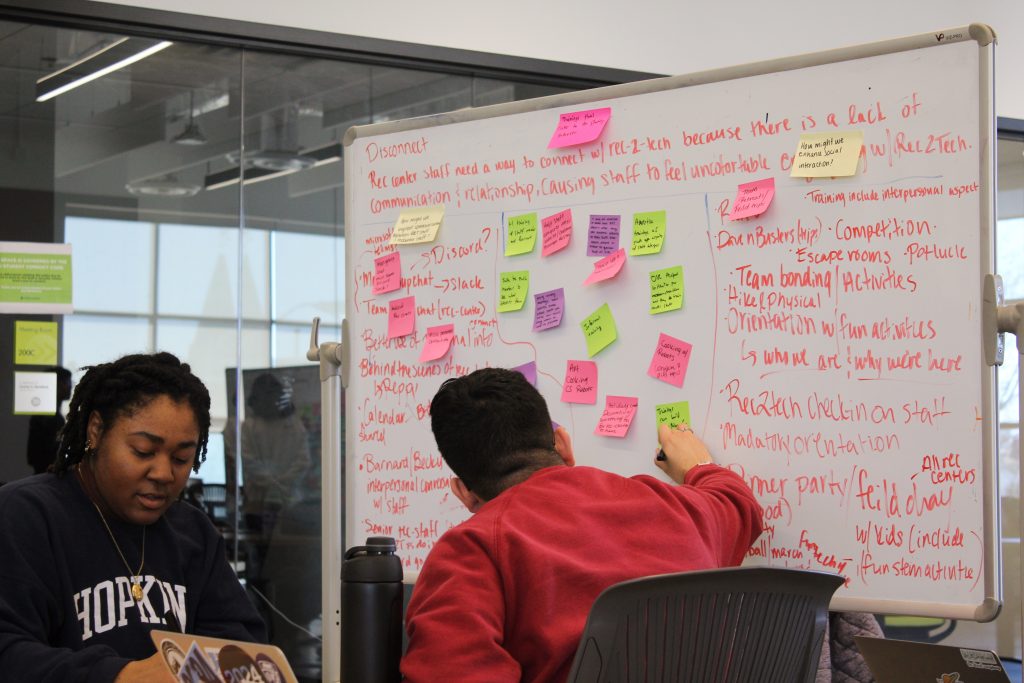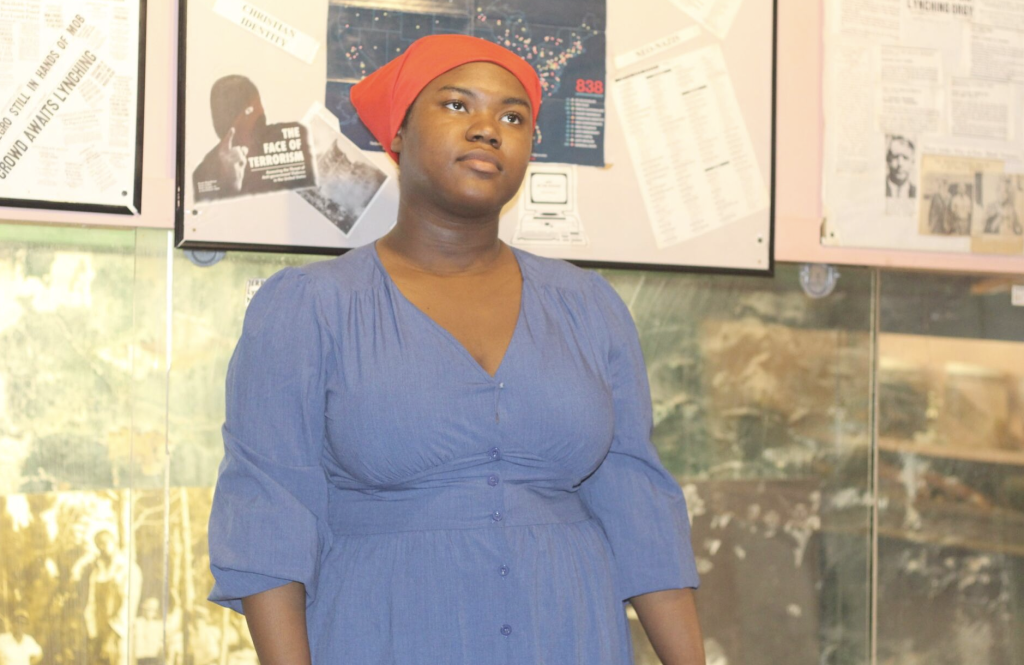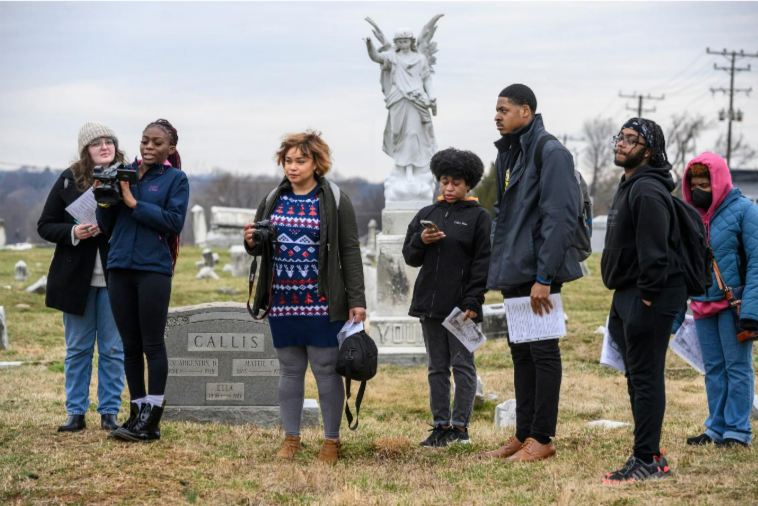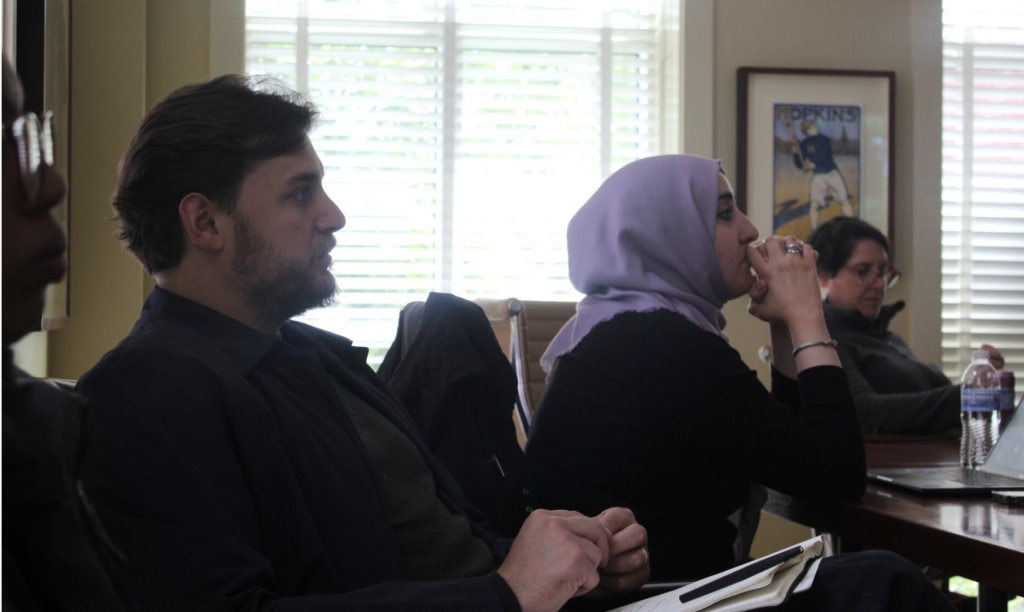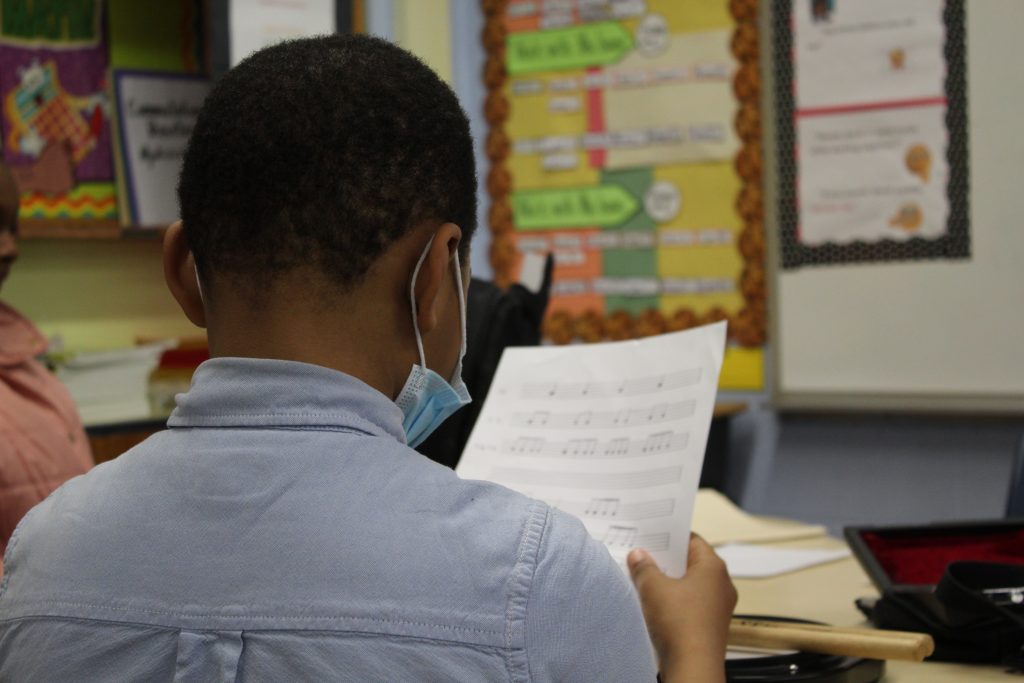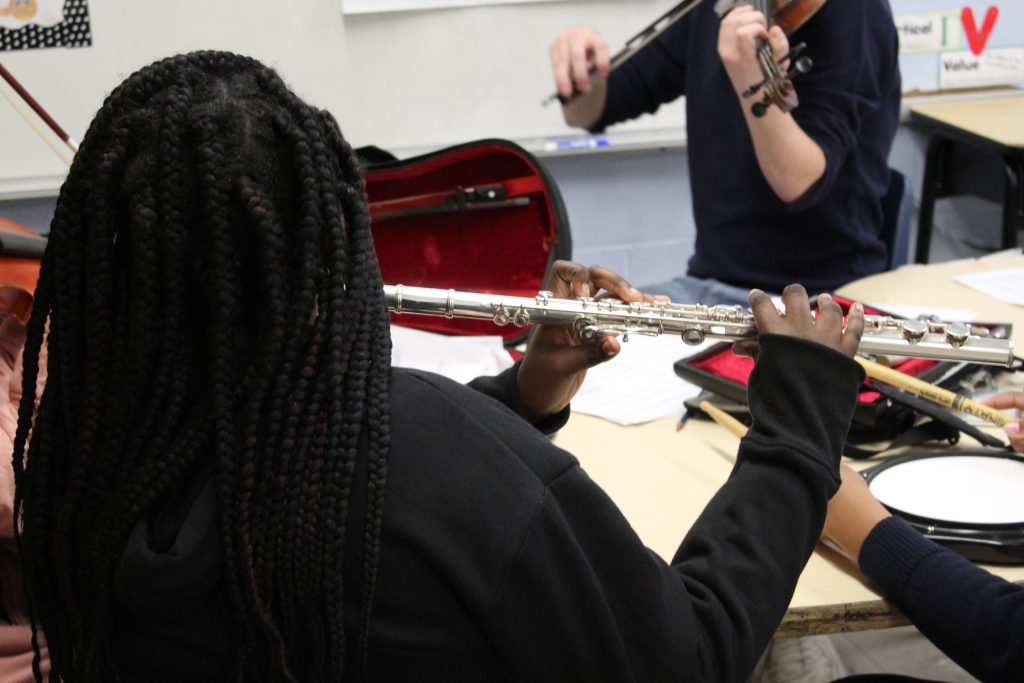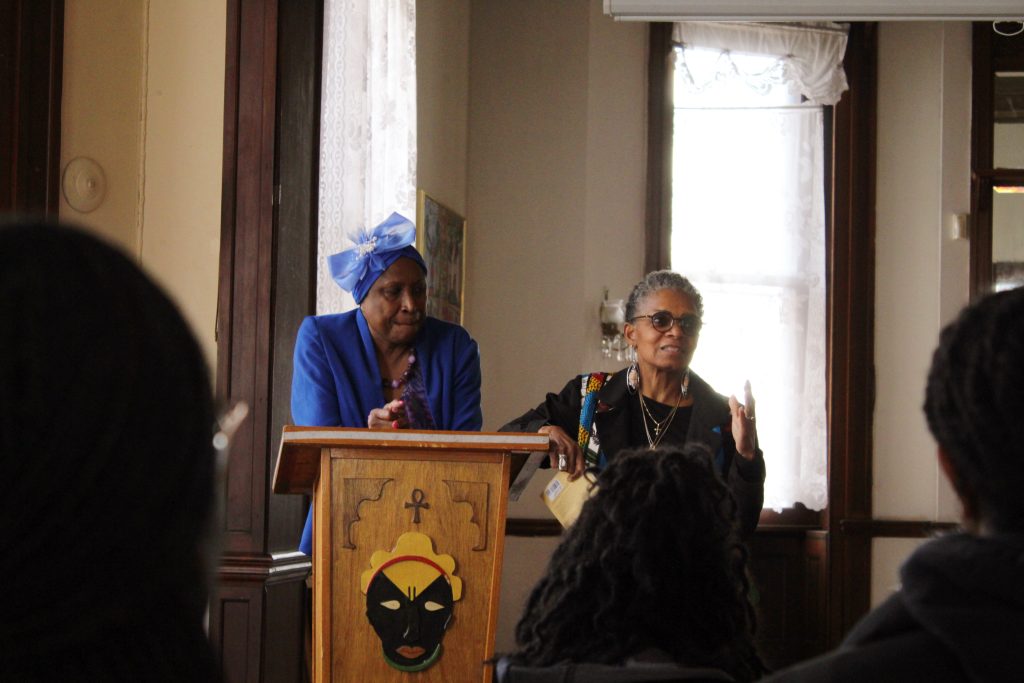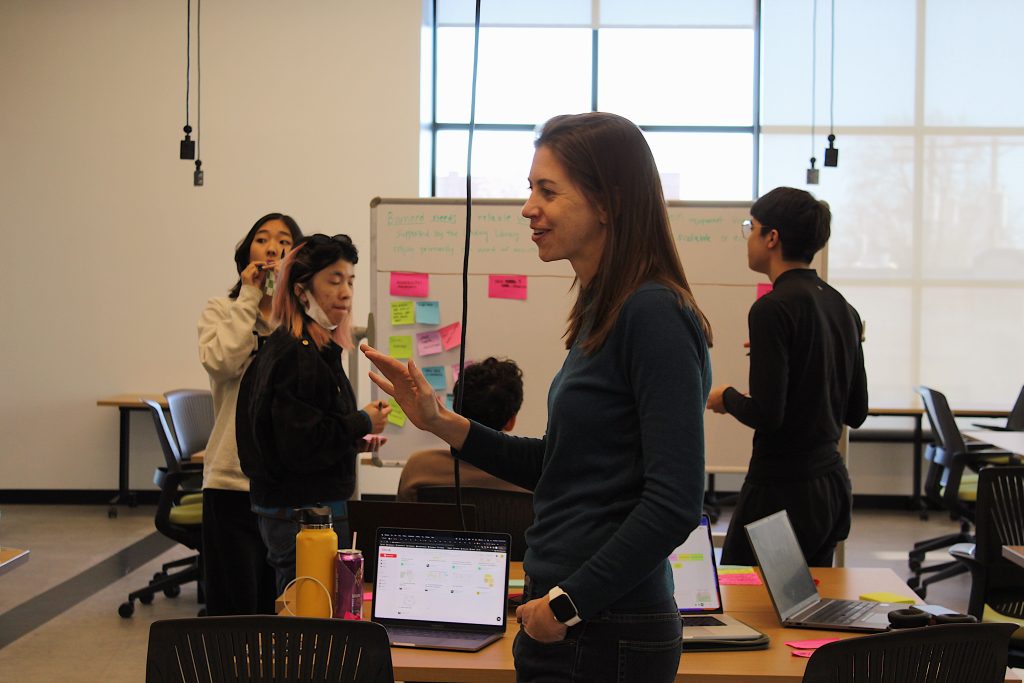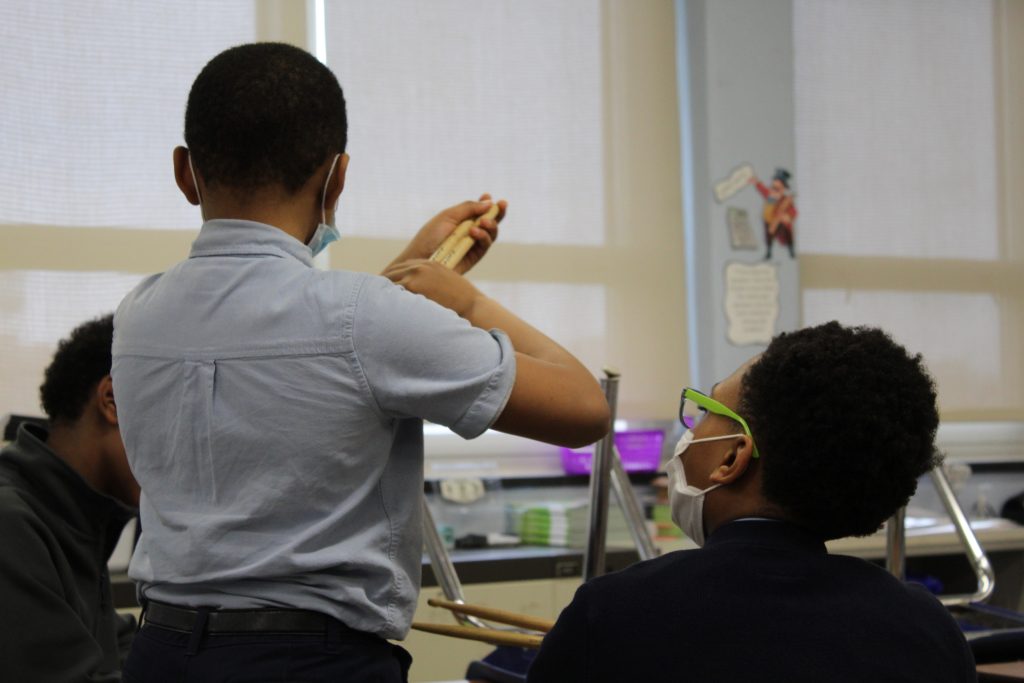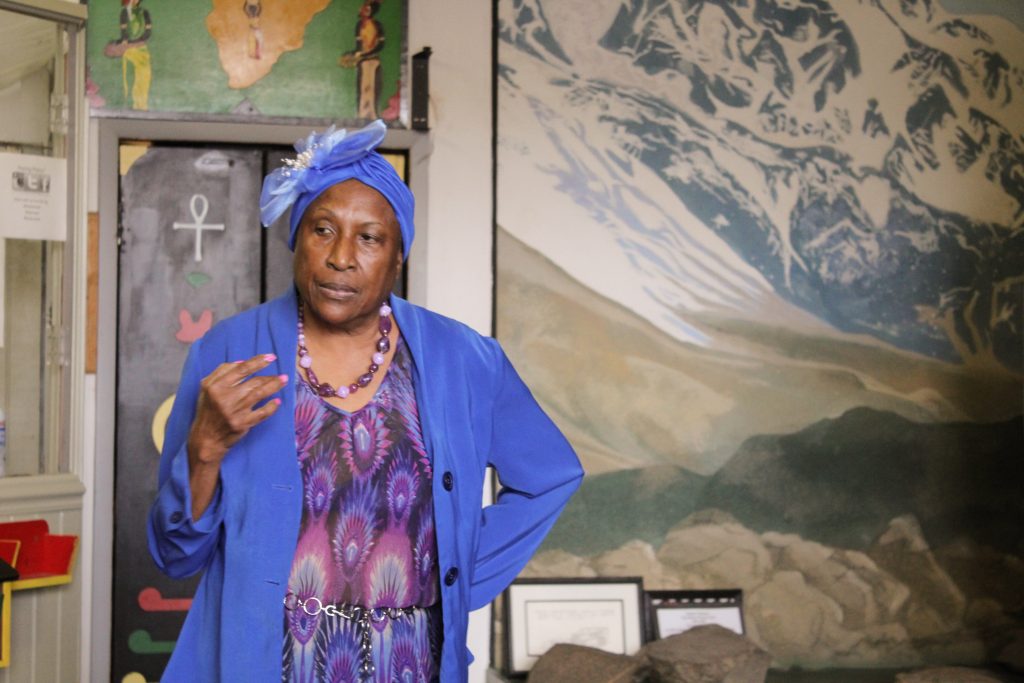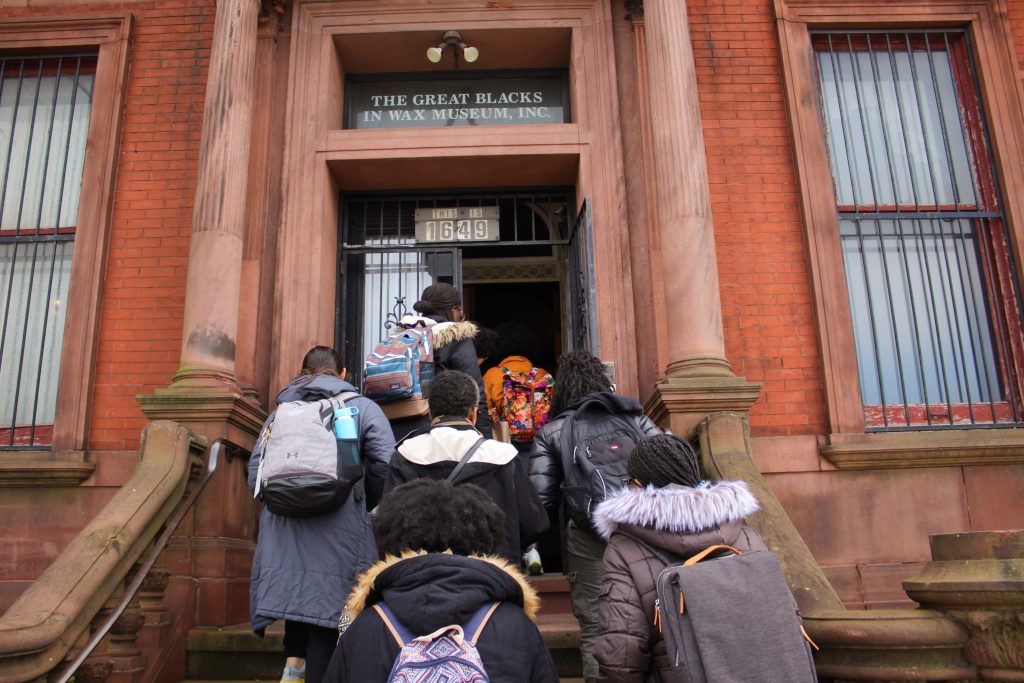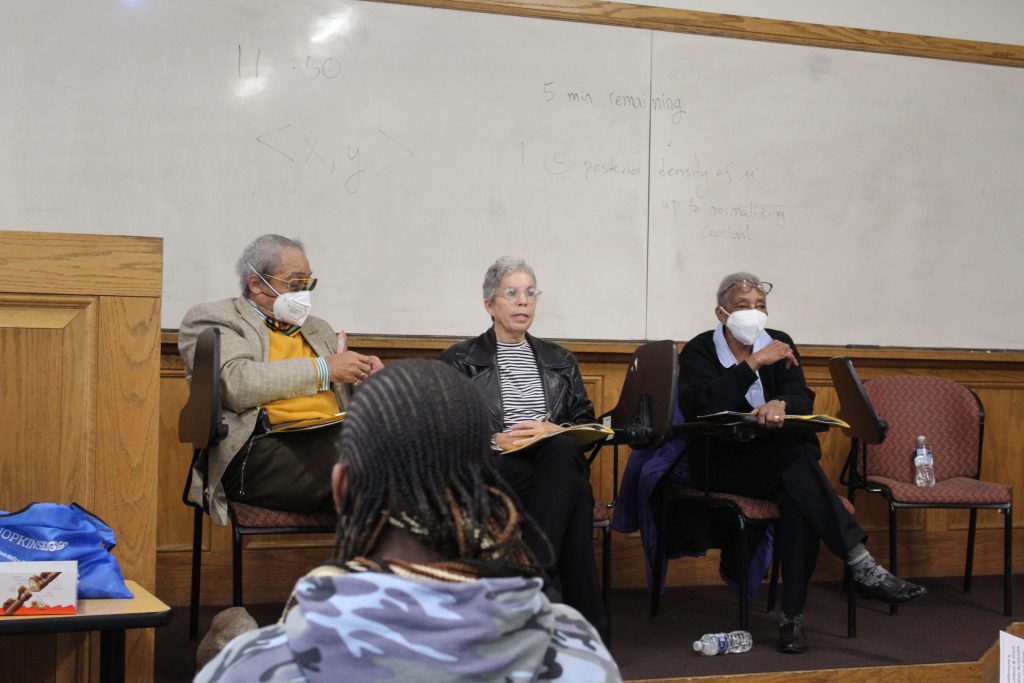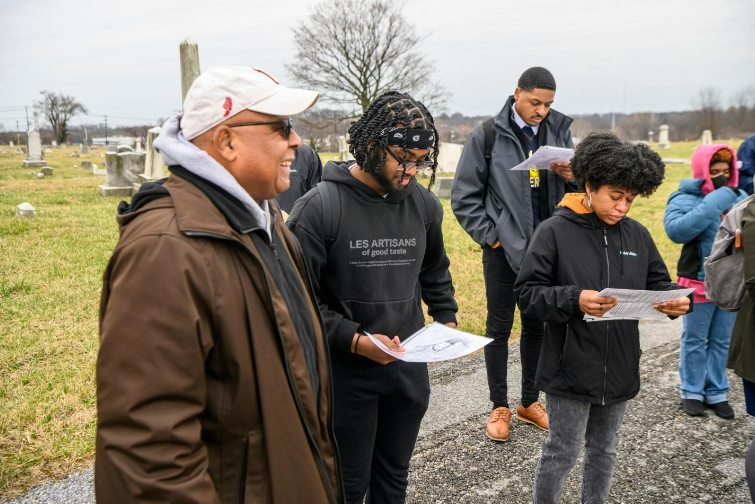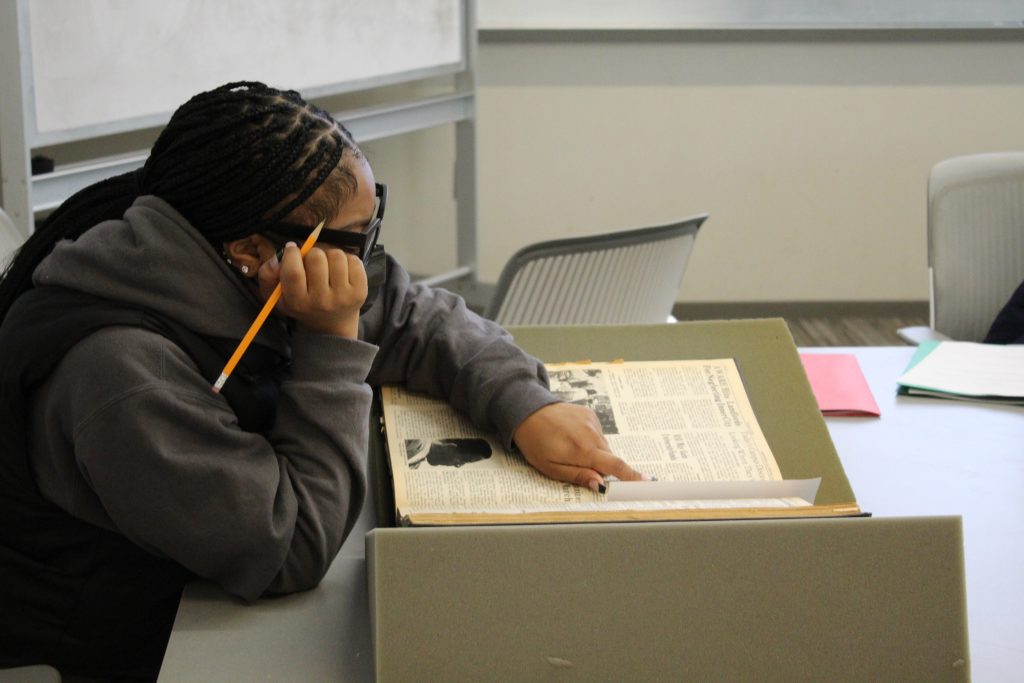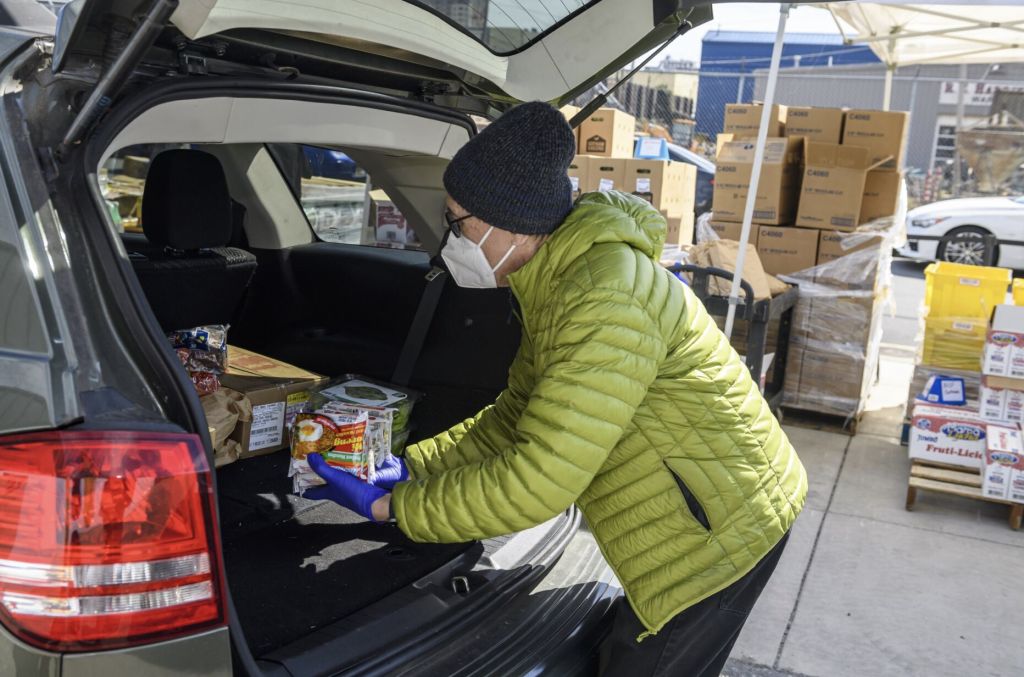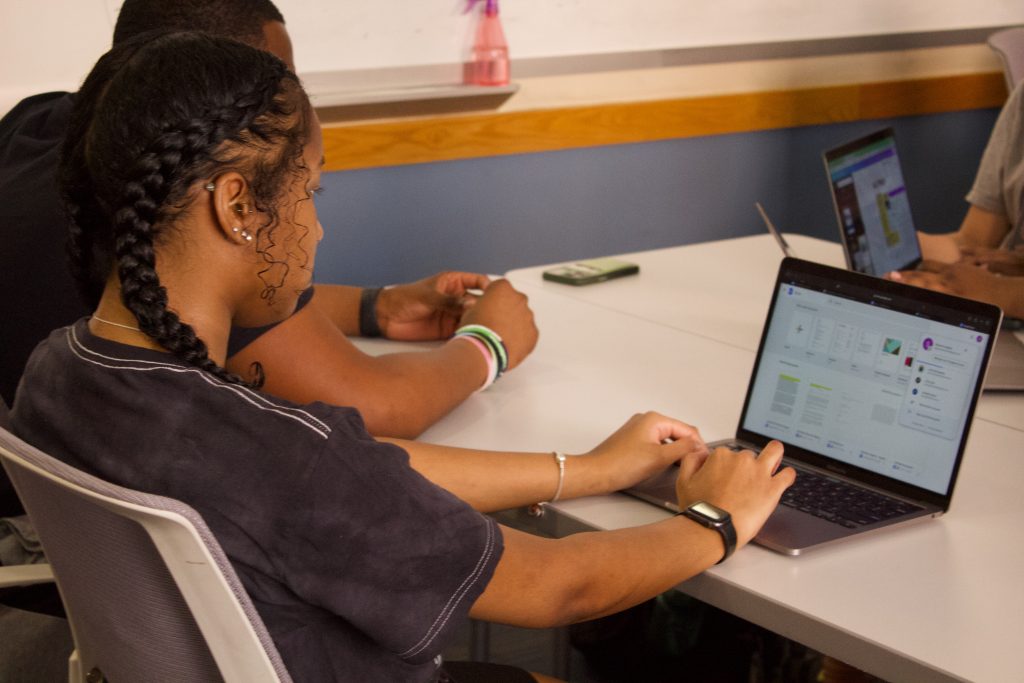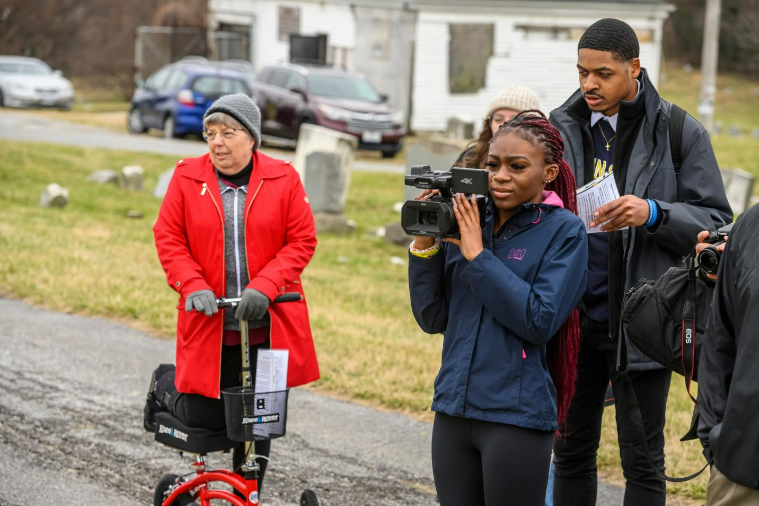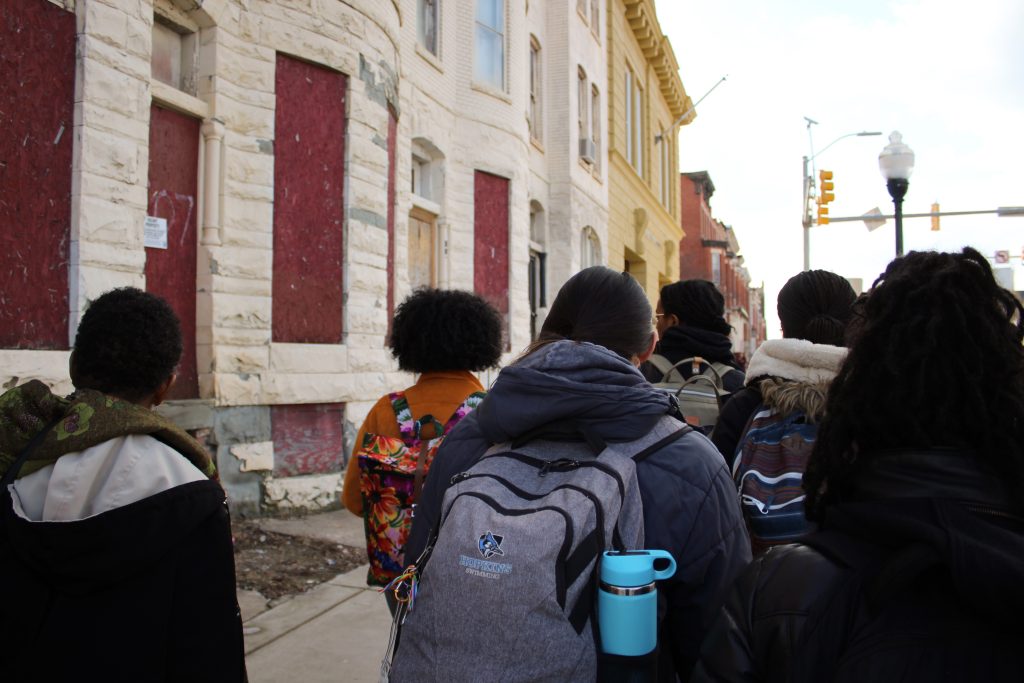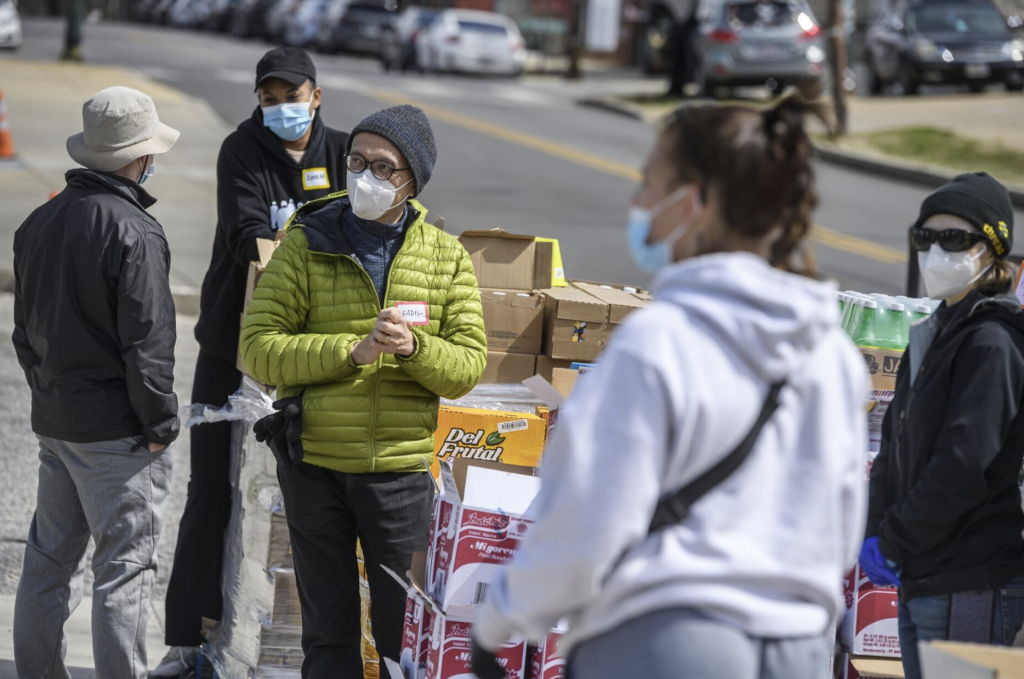Engaged Scholar Faculty and Community Partner Fellows Program
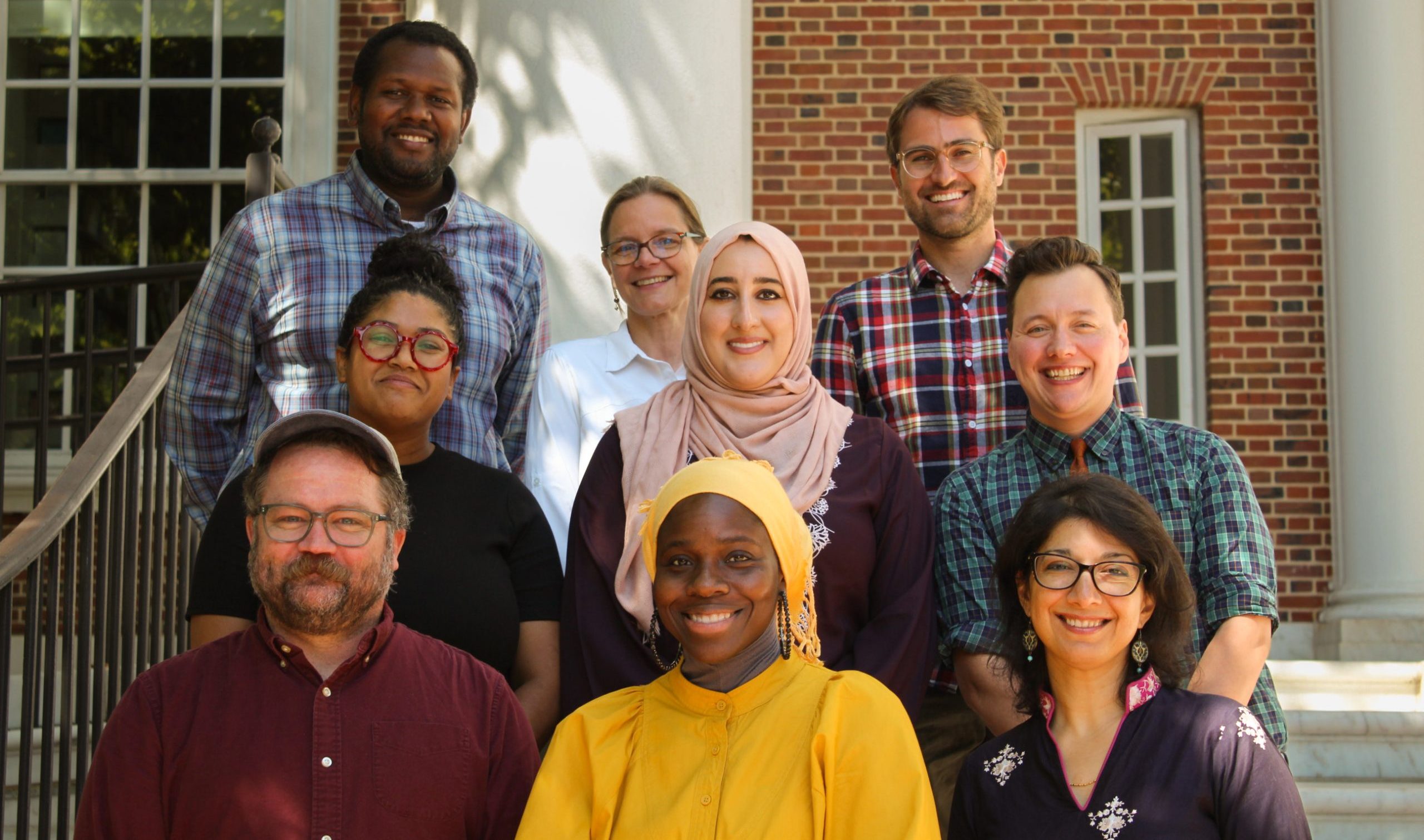
The Engaged Scholar Faculty & Community Partner Fellows Program is a cohort-based program housed at the Center for Social Concern that facilitates the development and implementation of mutually beneficial Community-Based Learning courses.
Community-Based Learning is a high-impact pedagogy that connects Faculty and Community Partners as co-educators for the purpose of prompting students to critically think about social and civic issues, while simultaneously meeting community partner/education partner-identified goals.
By encouraging a greater role for CBL at Johns Hopkins, the CSC is working to provide community members a greater voice in campus life and bridging gaps between the Homewood campus and surrounding communities.
How to Become a Faculty Fellow
Benefits
Expertise and knowledge can be found all throughout Baltimore City. Community Partners are immersed in non-profit, community organizing, and/or civic work, and hold a wealth of knowledge and resources that can powerfully contribute to the Hopkins student experience. The Engaged Scholar Program seeks to identify community partner co-educators who have the capacity to co-develop and co-implement a community-based learning course alongside a faculty partner.
Engaged Scholar Faculty & Community Partner fellows each receive a $2,000 co-educator stipend for the year and up to $1,000 in additional funding for CBL course logistics.
In addition to funding, the Faculty Fellows also receive training and logistical support through the Center for Social Concern.
Role and Responsibilities
- Teach a community-based learning course for students in either the Krieger School of Arts & Sciences, the Whiting School of Engineering, and/or Peabody during the spring of 2025.
- Co-educate alongside a community partner C0-Educator(s). Faculty and community partner Co-Educators should design/review the course syllabus together and determine mutually agreed upon feedback and metrics for course success.
- Participate in a two-day orientation to be held during the end of Summer 2024 (mid-August).
- Attend once a month, one-hour cohort development sessions during the following months: September, October, November, February, March, and April. The date and time of these sessions will be scheduled ahead of time, with the cohort’s input.
- Complete a program evaluation offering feedback to the Assistant Director of Engaged Scholarship about the Engaged Scholars Program.
- Whenever possible, connect Co-Educators to Hopkins resources.
Become a Faculty Fellow
The Engaged Scholar Fellows Program is an application-based program. Faculty applicants will be contacted shortly after submitting their application with next steps. Faculty applicants do not need to have a Community Partner co-educator identified by the time that their application is submitted. The Center for Social Concern can facilitate the process of connecting Faculty Fellows to Baltimore City-based Community Partner co-educator(s) as potential partners.
Application Process and Procedures
Applications for the 2024–25 cohort have closed. Please check back next spring. Faculty applicants do not need to have a Community Partner co-educator identified by the time that their application is submitted. The Center for Social Concern can help introduce Faculty Fellows to potential Baltimore City-based Community Partner co-educator(s). Please contact [email protected] with any questions.
Engaged Scholar Faculty and Community Partner Fellows 2024-2025 Cohort
2024-2025 Faculty Fellows
- Erricka Bridgeford
- Jasmine Blanks Jones
- Janice Greene
- Judah Adashi
- Katherine Noel
- Linsey Tenorio
- Mo Speller
- Nate Brown
- Shannon Robinson
- Valeria Procupez
Spring 2025 Community-Based Learning Courses
Listening to Baltimore- Judah Adashi &Erricka Bridgeford
(PY.123.532.01)
Course Description
This course explores the connections between listening in day-to-day life and listening as a musician, with an emphasis on the ways in which listening to the people and sounds of Baltimore can make us more engaged and responsive as composers and performers. This class is supported in part by the JHU Center for Social Concern’s Engaged Scholar Faculty and Community Partner Fellows Program, and will be co-taught by Dr. Judah Adashi and Erricka Bridgeford, Executive Director of the Baltimore Community Mediation Center and Co-Organizer of the Baltimore Peace Movement.
Community- Based Learning: Incarceration, Reentry, and Personal Storytelling- Shannon Robinson
(AS.220.213.01)
Course Description
This course offers an in-depth exploration of mass incarceration in the U.S.—its history, systemic issues, and its profound impact on the Baltimore community. Through engaging with personal narratives from the American Prison Writing Archive (housed at the JHU Sheridan Libraries), students will reflect on the lived experiences of incarcerated individuals. This course also provides an opportunity for students to connect with organizers, activists, educators, and writers who work alongside currently and formerly incarcerated people. In partnership with a Baltimore reentry program supporting formerly incarcerated women, students will conduct interviews and assist in the creation of individual memoir projects.
Community- Engaged Writing: Drugs and Harm Reduction in Baltimore City
(AS.004.351.3)
Course Description
This course offers a community-engaged approach to writing and public health, focusing on harm reduction strategies related to drug use in Baltimore City. Working with a local harm reduction nonprofit, we will explore the intersections of public health, policy, and community outreach.
Embodied Speculative History of Maryland Schools for African Americans in the 1800s- Jasmine Blanks Jones & Janice Greene
Course Description
This course explores Maryland’s role as home to the largest pre-Civil War population of free African Americans, who were dedicated to creating the educational tools necessary to secure their own freedom and uplift their communities. Education and land ownership were key to establishing social standing and forging an early, though often fraught, sense of social citizenship and its benefits. Students in this course will support the research efforts of a local Maryland schoolhouse museum, helping to develop immersive and experiential learning tools. Drawing on materials and documents specific to the museum—such as objects, curricular texts, original letters, newspaper accounts, the experiences of early teachers, and contemporaneous reports on Freedmen’s schools—students will engage in speculative history. This will serve as the foundation for creative reenactments that bring to life the pursuit of freedom education in early 1800s Maryland.
Baltimore’s Solidarity Ecosystem- Valeria Procupez
(AS 070.211)
Course Description
In 1988, Baltimore’s first African-American mayor, Kurt Schmoke, declared Baltimore the “city that reads.” In this course, we’ll explore the ways that Baltimore has always been a city that writes, too. In partnership with Wide Angle Youth Media (https://www.wideanglemedia.org), an organization dedicated to “cultivating and amplifying the voices of Baltimore youth through the media arts,” we’ll study how writing fuels the work of the organization, interacts with the residents of Baltimore, and knits together social life in this great city. At the same time we will name, and cultivate, the many ways and reasons to write: to connect with loved ones and the wider world, learn new knowledge and skills, solve problems, and make things happen in the world. Students can expect to write both traditional academic essays and in other forms such as presentations, proposals, case studies, social media campaigns, and more. Many thanks to the Center for Social Concern for its support of our WAYM partnership.
Community- Engaged Writing: Build, Borrow, Repair at the Tool Library- Nate Brown
Course Description
In this course, we will collaborate directly with the staff and volunteers of the Station North Tool Library, Baltimore’s decade-old tool-lending library. Together, we’ll seek to learn more about circular economies, libraries of things, tool use and maintenance, makerspaces, community nonprofit culture, and ethical storytelling practices. Students will engage in qualitative research both about and in service of the SNTL and will write in a variety of relevant genres (policy proposals, ethnography, process essays, opinion pieces, etc.). Over the course of the term, we’ll collaborate with the leadership of the SNTL to more fully understand its role in the lives of Baltimore builders, homeowners, hobbyists, artisans, activists, and more. We’ll also learn how to safely and effectively use a variety of excellent power tools. All first-year students who have taken Reintro and all students at the sophomore level or above are welcome.
Community- Engaged Writing: Neighborhood stories- Mo Speller
Course Description
This course will collaborate with the Peale Museum—Baltimore’s community museum—to plan, curate, and host an exhibition. Through this partnership, we will explore various forms of writing, including analyzing audience and user experiences, utilizing social media to boost engagement, and creating proposals for immersive events that bridge past neighborhood struggles with present-day community concerns. The course builds on the research and writing done by students in Reintro to Writing: Lost Baltimore (Spring-Fall 2024), who examined life in a West Baltimore neighborhood demolished between the 1930s and 1970s. This class is open to all first-year students who have taken Reintro and students at the sophomore level or above. While all students who have taken any Reintro course are welcome, previous participants in the Lost Baltimore Reintro are especially encouraged to enroll.
Advanced Digital Production: Happy Birthday Baltimore
(AS.004.351 (02))
Course Description
In this course, you will create a 7-10 minute character-driven, observational, issue-focused documentary film that seeks to capture the unvarnished truth of the human condition. The theme for Spring 2025 is Transportation Justice. Throughout the semester, you will partner with a classmate to form a Maysles’ camera/mic unit, gain access to real people’s lives, and complete intensive weekly production assignments while maintaining professional conduct in managing subject-observer relationships. Successful completion of both 100-level and 200-level digital production courses is required. It is strongly recommended that students take AS.061.162 Basic Interview and Shooting Techniques during Intersession before enrollment.
Community- Engaged Learning: Undergraduate Teaching Fellowship- Katherine Noel
Course Description
Students who have completed the fall class “Teaching Creative Writing in Baltimore Schools” are eligible for this class in the spring semester. As Teaching Fellows, students continue to work alongside writing teachers from the non-profit organization Writers in Baltimore Schools (WBS) to plan and lead creative writing workshops in local public elementary and middle schools. Class discussions will move into deeper explorations of topics like student-centered pedagogy, community building, and educational equity. Teaching Fellows will have opportunities for greater leadership at their worksites and will create resources for benefit of their students and future generations of Teaching Fellows.
Community Based Learning: Practicum in Language Disorders
Course Description
This course provides the opportunity to learn about adult aphasias, language disorders which are one of the most common consequences of stroke. You will receive training in supportive communication techniques and work as a communication partner with an individual with aphasia for two hours per week. Three class meetings for orientation and reading assignments will be held on campus; training and practicum will be conducted at a local aphasia support center. Independent mode of transportation required. Co-listed as AS.080.505 in Neuroscience
Faculty Fellows Through Words and Photos
- 2022-23 Fellows CBL “Lunch and Learn” Panel
- 2022-23 Faculty Fellow Dr. Jasmine Blanks Jones’ Class
- 2022-23 Faculty Fellow Dr. Fadil Santosa’s Class
- 2022-23 Faculty Fellow Dr. Gabrielle Dean’s Class
- 2022-23 Faculty Fellow Dr. Matthew Pavesich’s Class
- 2022-23 Faculty Fellow Dr. Alissa Murphy’s Class
- 2022-23 Faculty Fellow Dr. Anne-Elizabeth Brodsky’s Class
- 2022-23 Faculty Fellow Dr. Victoria Harm’s Class
Previous Fellows
2023-2024 Cohort
Homayra Ziad
Homayra Ziad is a scholar-activist, educator and writer, and Director of the Program in Islamic Studies at Johns Hopkins University. After receiving a doctorate in Islamic Studies from Yale, she was Assistant Professor of Religion at Trinity College in Hartford. She then spearheaded education on Islam and engagement with Muslim communities at an interfaith educational non-profit in Baltimore (the Institute of Islamic, Christian and Jewish Studies), where she helped teachers, activists and emerging religious leaders explore the intersections of religion and social justice.
Homayra believes deeply in the pedagogy of community-engaged learning and serves on the project team of Art, Religion and Cities, a Morgan State initiative that explores the display of religious art in museums to engage critical questions of race, justice, and community, and connects students to internship opportunities at cultural institutions. Homayra has fifteen years of experience in interreligious education and programming and was founding co-chair of the American Academy of Religion’s Interreligious and Interfaith Studies Group. She is co-editor of Words to Live By: Sacred Sources for Interreligious Engagement (Orbis Press, 2018). She has written for many academic and popular venues, and consulted and created programs for film and media. Homayra is the Board President of the ACLU of Maryland.
Dr. Nusaybah Abu-Mulaweh
Dr. Nusaybah Abu-Mulaweh is a faculty member in the Multidisciplinary Design Program within the Center for Leadership Education at Johns Hopkins. She teaches design courses that apply a human-centered approach that focuses on grounding designs in the needs of users throughout the entire design process.
Before joining Hopkins, she earned her BS and MS in electrical and computer engineering, and her PhD in engineering education from Purdue University. Dr. Abu-Mulaweh also taught in the EPICS Program, a large multidisciplinary community-engaged design program at Purdue University. She mentored multidisciplinary teams who worked with community partners through a human-centered design process. Working with community partners and yearning to enhance the understanding of others while working on design challenges inspired her dissertation, which focused on empathy development for undergraduate engineering students in community-engaged design courses.
Her research continues to focus on empathy in engineering, and she is very passionate about integrating empathy development in engineering at Hopkins to foster a more inclusive culture in which students learn to respond innovatively and responsibly to global challenges.
Anne-Elizabeth Brodsky
Anne-Elizabeth Brodsky teaches in the University Writing Program, where her courses center on American education, race, literature, and friendship. She is co-founder and faculty director of the Common Question.
Anne-Elizabeth served as co-chair of the Women Faculty Forum from 2016-19 and as a member of the Johns Hopkins Diversity Leadership Council from 2010-16. She collaborates with the JUMP & Hop-In programs and the Center for Teaching Excellence and Innovation and is a member of the Baltimore Scholars Steering Committee, a lapsed violinist in the Hopkins Symphony Orchestra, and a Baltimore City Public Schools parent.
Before joining the Hopkins faculty, Anne-Elizabeth was a senior program manager at the JHU Center for Talented Youth, where she ran summer programs for academically talented students in grades 2-9 and oversaw curriculum development. She has taught at the City Colleges of Chicago and Ida Crown Jewish Academy. Her dissertation, Teach the Nation: Pedagogies of Racial Uplift in US Women’s Writing of the 1890s, was published by Routledge in 2003.
Matthew Pavesich
Matthew Pavesich is Director and Teaching Professor of the University Writing Program. He specializes in writing and rhetoric, pedagogy, and the public humanities. His current projects include a large-scale study of self-sponsored writing, or what people write beyond the requirements of work or school; and DC/Adapters, a photographic archive of visual rhetoric in Washington, D.C. He also serves on a national committee devoted to the cultivation of public humanities with the Rhetoric Society of America and on the editorial board of the Journal of Basic Writing.
Before joining the faculty at Hopkins in 2021, Pavesich taught for ten years at Georgetown University, where he received the Provost’s Innovation in Teaching Award in 2020. His courses include innovative models for first-year writing and rhetoric, collaborative teaching in the disciplines, and graduate courses in the teaching of writing and the public and digital humanities; many of these courses connected with local communities in different ways. His work has appeared in enculturation, the WAC Journal, Technoculture, The Journal of Basic Writing, and several edited volumes. Pavesich completed his doctoral work in English (2009), specializing in rhetoric at the University of Illinois-Chicago. Learn more at matthewpavesich.me.
Lisa E. Wright
Lisa E. Wright is a Lecturer in the University Writing Program. Her research interests and courses center on Black maternal health, with a particular focus on Black midwives.
Lisa is working on a manuscript “The Ring of Fire: A Memoir” which chronicles her home births with her midhusband. It further examines Black women’s birthing choices, with a particular focus on the de-legitimization of Black midwives, and on creating safe birthing spaces inside and outside medical institutions.
Prior to joining Hopkins, Wright co-founded the Talking Justice Project, an interactive workshop that teaches antiracist strategies for writing center consultants and teachers. Using antiracist pedagogy and inclusive writing center pedagogy, they provided attendees with strategies to address problematic ideas while also maintaining a learning environment. Her current project intersects faith and religious identities in our writing spaces. The co-edited collection The Politics of Faith and Secularism in Writing Centers and Writing Studies is under review at Utah State University Press.
Lisa was born and raised in Baltimore, Maryland. She holds a B.A. in English from Coppin State University and an M.A. from The Ohio State University in African and African American studies. Lisa completed her doctoral work at Oklahoma State University in English, specializing in Creative Writing Nonfiction and Black feminist literature. Her work has appeared in College English, The Writing Center Journal, Praxis, Axis, and Hippocampus Magazine.
Nadejda I. Webb
Nadejda I. Webb (she/her/they) is currently an ACLS Emerging Voices Postdoctoral Fellow in Black Digital Humanities at the Johns Hopkins University, where her teaching and research interests include 20th and 21st-century African-American and Post-Colonial literature and digital humanities, imaginaries, and belonging. In 2024, she will be the incoming Assistant Director of LifexCode: Digital Humanities Against Enclosure and a Visiting Assistant Professor in the Center for Digital Humanities.
In her first year at JHU, she initiated the “We Live Language” (WLL) lab in Black Beyond Data, a Computational Humanities and Social Sciences ecosystem, and co-organized the 2023 Keystone DH conference. WLL is grounded in the writing and spoken word of Afro-diasporic poets, authors, and philosophers and probes the relationship between language and power. In addition to WLL, she is revising her book manuscript, Reckoning: Visual Narratives and Truth-Making, which examines the relationship between new media platforms, self-making, and anti-black racial fictions.
She complements her academic research interests with deep community investments. In addition to working with New Generation Scholars and African Diaspora Alliance, two Baltimore-area community programs while at JHU, she has created curricula for and taught in the CUNY Pipeline Program. The CUNY Pipeline Program was founded 32 years ago to assist Black and Brown undergraduate CUNY students in navigating their graduate school application processes and journeys. She is an incoming 2023-24 Center for Social Concern’s Engaged Scholar Faculty Fellow, which will support her in co-teaching an undergraduate course with a Baltimore community partner.
Webb’s research has been supported by the Andrew W. Mellon Foundation, the Social Science Research Council, Columbia University’s Center for Oral History, the USC Annenberg School for Communication and Journalism, and Vanderbilt University. She received her joint-Ph.D. in English and Comparative Media Analysis and Practice from Vanderbilt and her BA in English Language and Literature from CUNY Hunter College.
Thomas K.M. Cudjoe, M.D., M.P.H., M.A.
Thomas K.M. Cudjoe, M.D., M.P.H., M.A. is the Robert and Jane Meyerhoff Endowed Professor, Assistant Professor of Geriatric Medicine and Gerontology at the Johns Hopkins School of Medicine. He leverages community-based strategies, mixed-methods and human centered design to understand and address social isolation. Additionally, he has led studies that examined the prevalence of social isolation among older adults and associations between social isolation and health outcomes. Dr. Cudjoe also serves on the Scientific Advisory Council for the Foundation for Social Connection. His work has been featured in the New York Times, Wall Street Journal, NPR, and on Good Morning America.
Daniel Cumming
Daniel Cumming is a historian of the 20th-century U.S. and a postdoctoral fellow with the Program in Racism, Immigration, and Citizenship at Johns Hopkins University. His scholarship explores the intersections of housing policy, public health, environmental justice, racial capitalism, and metropolitan history. A recent Ph.D. from New York University, Cumming is writing a book that examines the transformation of racial inequality through the rise of academic medical institutions in 20th-century Baltimore. During the academic year 2022-23, Cumming was a research scholar with Columbia University’s Ira A. Lipman Center for Journalism and Civil and Human Rights, and he previously held fellowships with the Jefferson Scholars Foundation, the Hagley Museum and Library, the National Library of Medicine, and the Maryland Center for History and Culture. He is a former high school teacher at Carver Vocational-Technical High School in Baltimore City.
Nate Brown
Nate Brown is a writer and editor who holds a BA in English from Cornell University (2004) and an MFA in fiction from the University of Wisconsin-Madison (2008). He began his publishing career at Random House in 2004, and was the founding book page editor of the Brooklyn-based digest, The L Magazine, where he edited reviews and the annual summer fiction issue from 2006-2012. From 2012-2014, he was the Deputy Director of the PEN/Faulkner Foundation in Washington, DC, and he is currently a board member of Writers in Baltimore Schools, a nonprofit dedicated to supporting student writers in Baltimore City.
Currently, he is the managing editor of the award-winning, Austin-based literary magazine American Short Fiction, and he has taught creative writing and composition at the University of Wisconsin, through the International Writing Program at the University of Iowa, at the George Washington University, Georgetown, and elsewhere.
His areas of interest and research include equity and access in literary publishing, visual rhetoric and writing about art, community-based learning, and sustainability in the nonprofit arts space. Learn more at: https://nate-brown.com/
Morris “Mo” Speller
Morris “Mo” Speller teaches in the University Writing Program. His writing courses encourage students to think about how the past informs present-day life in Baltimore. Before becoming a lecturer in the University Writing Program, Mo completed his PhD in History at Hopkins in 2020. He previously taught history courses at Johns Hopkins, Maryland Institute and College of Art (MICA), and at the University of Maryland, Baltimore County (UMBC).
Mo’s primary research examines the history of mortgage discrimination, predatory lending, racial segregation, and housing policy in his hometown of St. Louis. His other research interests include the history of queer communities and “gayborhood” politics in Baltimore and the history of Baltimore neighborhoods displaced by urban renewal. Mo is also on the Board of the Society of American City and Regional Planning Historians, where he serves on the Communications Committee.
2022-2023 Cohort
- Alissa Murphy
- Anne-Elizabeth Brodsky
- Fadil Santosa
- Gabrielle Dean
- Jasmine Blanks Jones
- Matthew Pavesich
- Victoria Harms
2019-2020 Cohort
Dr. Kali-Ashet Amen
Dr. Kali-Ahset Amen is an interdisciplinary social scientist, exhibition curator, and organizational strategist. Her scholarship and intellectual activism focus on racism, black subjectivities, and urban inequalities in Central America and the U.S. South.
She is an assistant research professor of Sociology and the associate director of the Billie Holiday Project for Liberation Arts at Johns Hopkins University. She has published journal articles and policy papers, and is an associate editor of City & Community, the urban section journal of the American Sociological Association.
Other editorial projects include the Journal of Urban Affairs’ special issue “Black Meccas of the South,” forthcoming in Fall 2019. The museum sector is another domain under Kali-Ahset’s purview. As an independent curator, she collaborates with cultural and educational institutions to produce public history programs and exhibitions exploring Africana experience.
Beyond the academy, Kali-Ahset coordinates grassroots educational initiatives designed to enhance people’s capacity to understand, analyze, and transform the systems of inequality that affect their lives. Related to this work, she serves as a program director for Humanity in Action, an international non-profit organization that provides political training to social justice activists from the U.S. and Europe.
From 2008 to 2015, Kali-Ahset reached broadcast audiences as an award-winning public affairs journalist on Atlanta’s Pacifica network affiliate WRFG 89.3 FM. In addition, her community radio programming, anchored in anti-oppression pedagogy, has been honored by the Atlanta Press Club, the Atlanta Association of Black Journalists, the Broadcast Education Association, and the National Alliance for Women in Media.
Anand Pandian
Anand Pandian teaches in the anthropology department at Johns Hopkins University. His research and writing focus on relationships between people and the environment, oriented toward a wider public audience. Together with other colleagues on the Homewood campus, he is launching a new initiative on ecological design that will involve teaching, research, and community work in Baltimore. Alongside this, he lives with his family in Wyman Park, across the Stony Run from the university.
Dr. Joseph Plaster
Dr. Joseph Plaster is Curator in Public Humanities for the Sheridan Libraries and University Museums and an Assistant Research Scholar at the Alexander Grass Humanities Institute. His research and teaching focuses on collaborative public humanities, performance studies, oral history, and queer studies. Plaster completed his PhD in American Studies at Yale University.
His dissertation explores the social trauma inflicted on queer, marginally housed youth in U.S. “tenderloin” districts and the ways they work to transform those brutal realities through religious ritual, performative storytelling, novel kinship networks, and the arts. His work has appeared in Radical History Review and has been supported by grants from the National Endowment for the Humanities and fellowships at The New York Public Library and The Graduate Center of the City University of New York. In addition, in 2010, Plaster was awarded the American Historical Association’s Allan Bérubé Prize for outstanding work in public history.
As Curator in Public Humanities, Plaster conducts original research at archives and museums across Johns Hopkins University and interprets those collections for the university community and the public through public humanities programs, oral history projects, courses, and other collections-based innovations. His first large-scale project is the Peabody Ballroom Experience, a collaboration with Baltimore’s ballroom community, a performance-based art culture comprising gay, lesbian, trans, and gender non-conforming people of color.
Robbie Shilliam
Robbie Shilliam researches the political and intellectual complicities of colonialism and race in the global order. He is co-editor of the Rowman & Littlefield book series, Kilombo: International Relations and Colonial Question. Robbie was a co-founder of the Colonial/Postcolonial/Decolonial working group of the British International Studies Association and is a long-standing active member of the Global Development section of the International Studies Association.
Over the past six years, Robbie has co-curated with community intellectuals and elders a series of exhibitions–in Ethiopia, Jamaica and the UK–which have brought to light the histories and significance of the Rastafari movement for contemporary politics. Based on original, primary research in British imperial and postcolonial history, this work now enjoys an online presence as a teaching aid.
Currently, Robbie is working on three strands of inquiry: firstly, a re-reading of classical political economy through its intimate relationship to Atlantic slavery, with a bearing towards contemporary controversies regarding “social conservatism”; secondly, a retrieval of Ethiopianism as a critical orientation towards global order, especially in terms of its cultivation of a tradition of anti-colonial anti-fascism from the 1930s onwards; and thirdly, South-South anti-colonial connections, especially between peoples of the African Diaspora and indigenous movements.
Finally, Robbie will be working closely with community fellows: Wayne A. Rose and John “Jake” Homiak.

